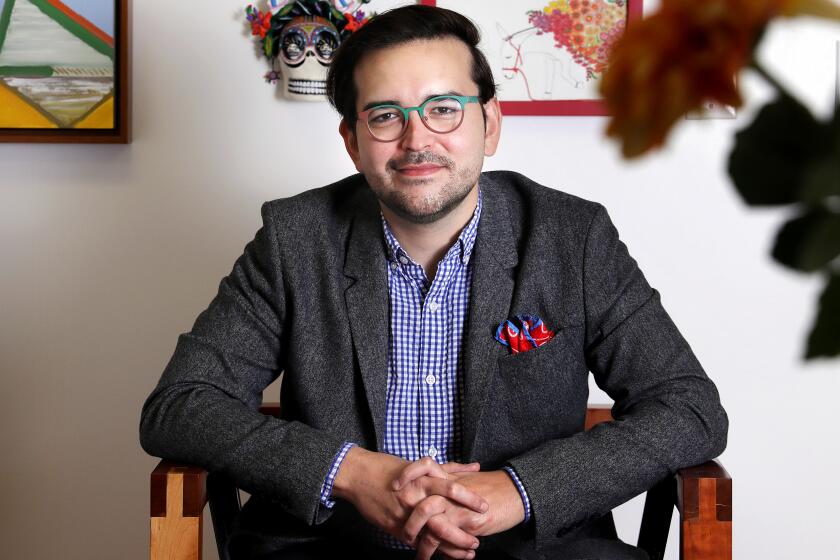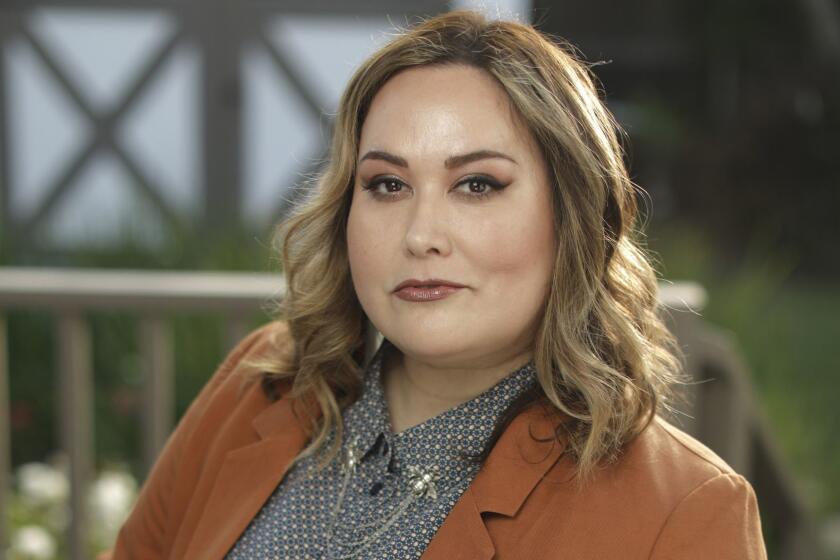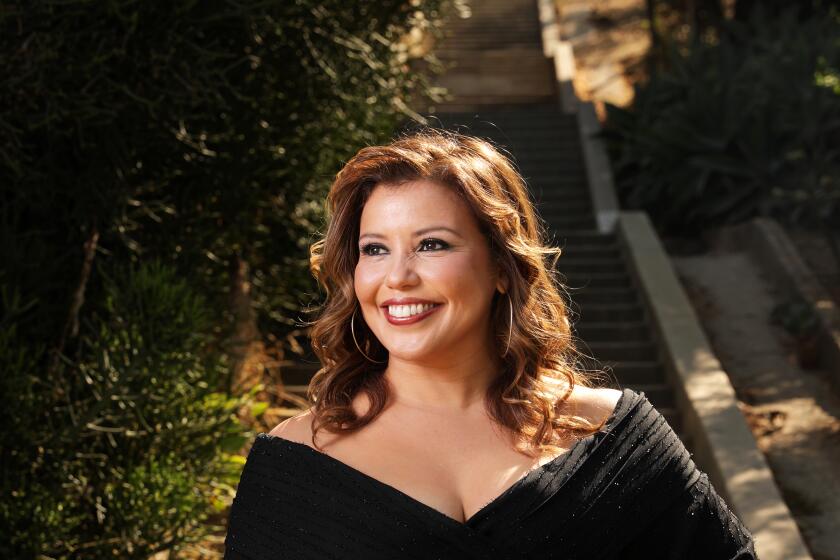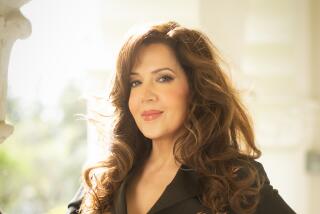
- Share via
“There was that moment where I thought: ‘Do I want this pressure?’” Christian Serratos says flatly.
Can you blame her? How else would you process portraying Selena Quintanilla-Pérez, the beloved Queen of Tejano music known simply as Selena, whose enduring legacy and devoted fan base remain steadfast a quarter of a century after her murder in 1995. The Mexican American singer has been immortalized on T-shirts and tote bags, inspired a line of MAC Cosmetics makeup, received an honorary Walk of Fame star and fueled countless Halloween costume tributes, including from the likes of Demi Lovato and Kim Kardashian. She’s even inspired a college course at San Diego State University.
The Latinx experience chronicled
Get the Latinx Files newsletter for stories that capture the multitudes within our communities.
You may occasionally receive promotional content from the Los Angeles Times.
And the pressure doesn’t end there. Serratos is following in the footsteps of Jennifer Lopez, who portrayed the late singer in the 1997 biopic “Selena,” which catapulted Lopez’s career to new heights and which has become a contemporary classic, in heavy rotation in Latino homes. Comparisons are inevitable.
Ultimately, though, Serratos decided she could bear the weight.
And so the 30-year-old actress, known among “Walking Dead” enthusiasts for her role as Rosita Espinosa, committed to channeling Quintanilla-Pérez in Netflix’s “Selena: The Series,” which traces the singer’s story from her birth until she was gunned down in her hometown of Corpus Christi, Texas, by the president of her fan club, Yolanda Saldívar, at age 23.
“I knew that getting this was going to be difficult for a slew of reasons,” Serratos says. “I had to really take such care and have so much respect for everything the fans love and everything that she was to her family. And I knew I was never going to make everybody happy. I knew that because she had that star quality. We all feel a sense of ownership when it comes to Selena — that’s my homie, that’s my family, that’s my sister.”
Producer Jaime Dávila wants the industry to know this about Latinos: “We’re not a separate category. We’re part of America. We’re part of the mainstream.”

“Selena: The Series” explores the singer’s journey from small gigs to becoming the most successful female Latin artist of all time.
Serratos is speaking from a hotel room in Los Angeles, where she’s been doing a blitz of COVID-19 pandemic-style interviews via video chat on a laptop. Her look is more subdued than the bold style on display in the photos accompanying this article: She’s sporting a simple button-down blouse, its pearl sheen amplified by the glow of the screen. The only touch of color in sight is the seafoam green coat of polish on her almond-shaped nails.
She recently wrapped filming of the show’s second season — under COVID-19 health and safety protocols — and before that tried to make the best out of the time she’s spent at home during the pandemic with her 3-year-old daughter, Wolfie, and her husband, musician David Boyd. She took a few virtual dance classes, taught herself how to solve a Rubik’s Cube and started taking Farsi lessons online: “I think if everyone maybe started to take an interest in other people’s languages, then maybe we would take an interest in other people’s cultures and maybe stop being such d— to each other.”
To be days away from the Dec. 4 global launch of the Netflix series is, as she tells it, incredibly nerve-racking — even when her best friend sent her a photo of the show’s billboard along Sunset Boulevard. “I cried and she was like, ‘Oh, are you excited?’ and I was like, ‘No, I’m terrified!’”
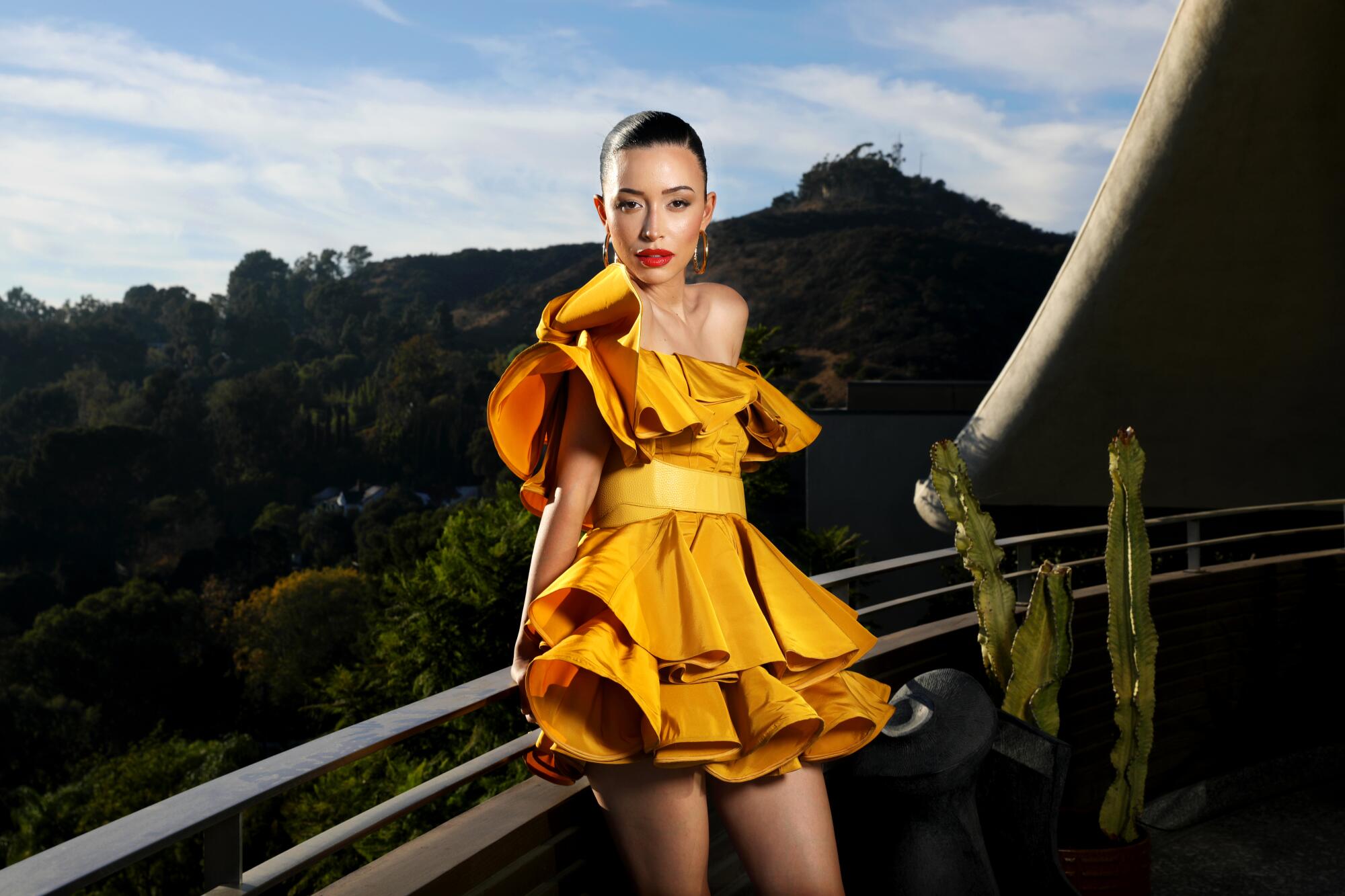
She explains: “The concept of it coming out really terrifies me. So far, Selena has been ours. Selena has been something very precious and vulnerable that I got to share with the cast and crew. Now I’m sitting here and doing press, and there’s nothing I can do anymore.”
Serratos says she feels a visceral connection to what Quintanilla-Pérez and her undying myth represent. Known as La Reina del Tex-Mex, the singer bridged the gap between her Mexican heritage and her American roots with a blend of traditional Mexican musical forms and mainstream pop in songs such as “Como la Flor” and “La Carcacha.”
Launched by Tanya Saracho’s United Latinx Project, the letter, signed by more than 270 Latinx creatives, calls Hollywood “complicit in our exclusion.”
Quintanilla-Pérez, who didn’t grow up speaking Spanish, first learned the lyrics to her songs phonetically, before becoming more fluent later on. She had been working on her first English-language album, in hopes of becoming a crossover superstar, when she was killed.
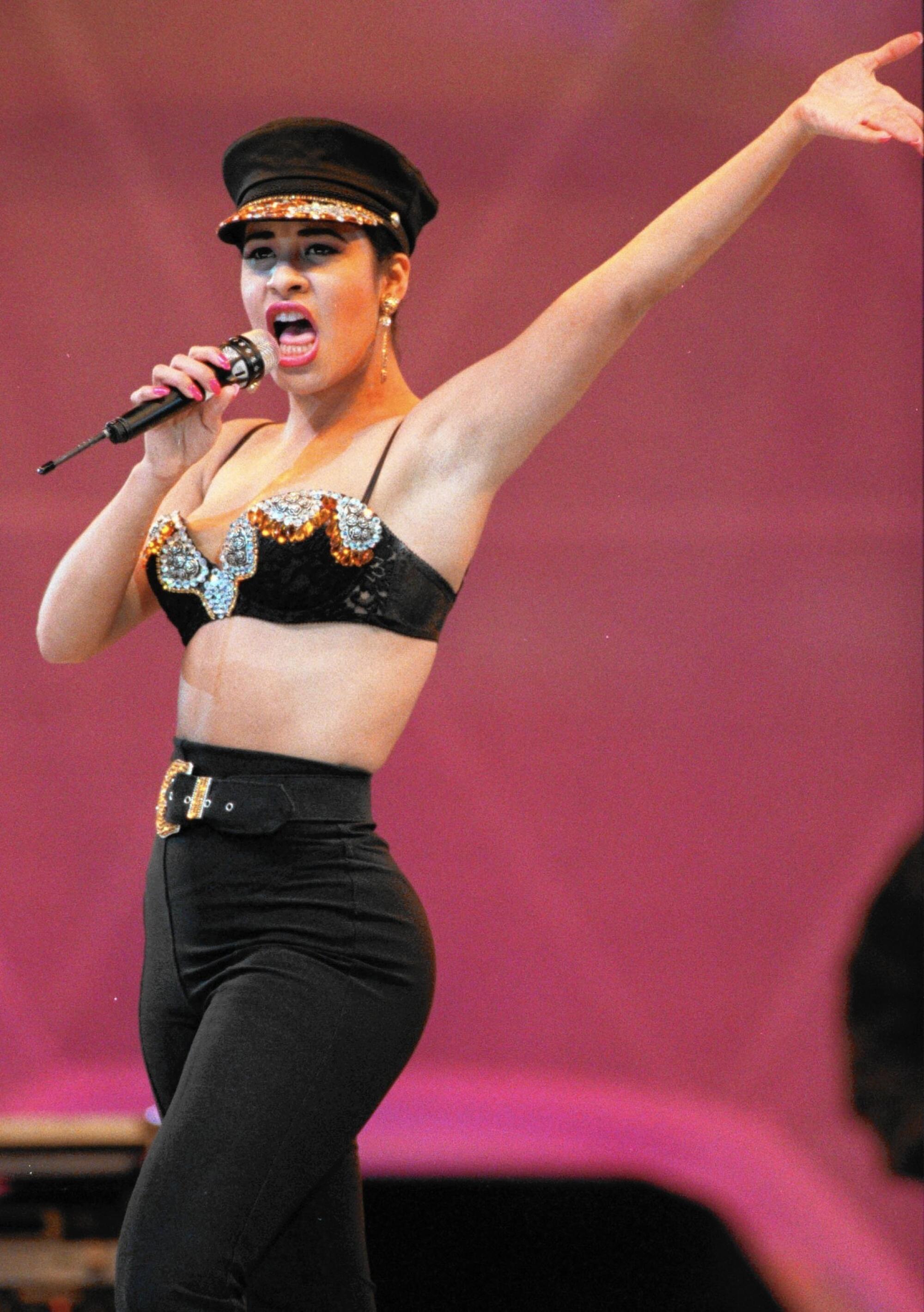
“We both grew up Mexican American and struggled with things like language and wanting to feel included,” says Serratos, who speaks Spanish but says it isn’t perfect. “And she had been trying to break out into her industry for so long, and oftentimes, it wasn’t easy for her because she was a young girl, she was a Latina ... and all of the things that made her a legend and made her a star started when she was a kid. I felt her so desperately trying to convince people that her ideas were innovative, and she trusted in herself so much, and I really admire that.”
As a result, Serratos devoted herself to the role — before she even booked the job.
She rummaged through the internet’s vault of articles and videos, studying the late singer’s mannerisms, movements and vocal patterns, while also trying to unearth the essence that made her so beloved by fans. An attempt to view the Gregory Nava-directed movie, which had been a crucial source of entertainment growing up, lasted only a few minutes: “I so badly wanted to learn from her.
“I just started trying to compile as many old videos as possible,” she says. “And luckily with YouTube, it’s so much easier, and social media was really helpful. There’s some amazing Selena fans out there that probably wouldn’t know that I heavily relied on them, because they fed me old, very rare videos of her that I watched all the time.”
Serratos also began working with a dialect coach — trying to perfect the singer’s gentle Southern drawl — and a vocal coach. (She says that “Si Una Vez,” which was on the list of songs to choose from for the audition, was the most challenging to sing but that it also came to be her favorite.) By the time production on the ninth season of “The Walking Dead” had begun, she was already in conversations for the role, traveling to San Diego, L.A. and Rosarito, Mexico.
With the approval of the Quintanilla family, which was involved in the making of the series as well as the 1997 feature, Serratos was cast, and she left the ninth season of “The Walking Dead” early to begin work on the Netflix series. (Asked if she worried that the family’s oversight could render a portrait too carefully tailored, Serratos was diplomatic. “I mean, maybe, but I think that ... I wouldn’t know,” she says. “Because all I know is the icon that we all know. I don’t know the real Selena. We don’t know the real Selena. Only her family does. So we’ll never have that answer.”)
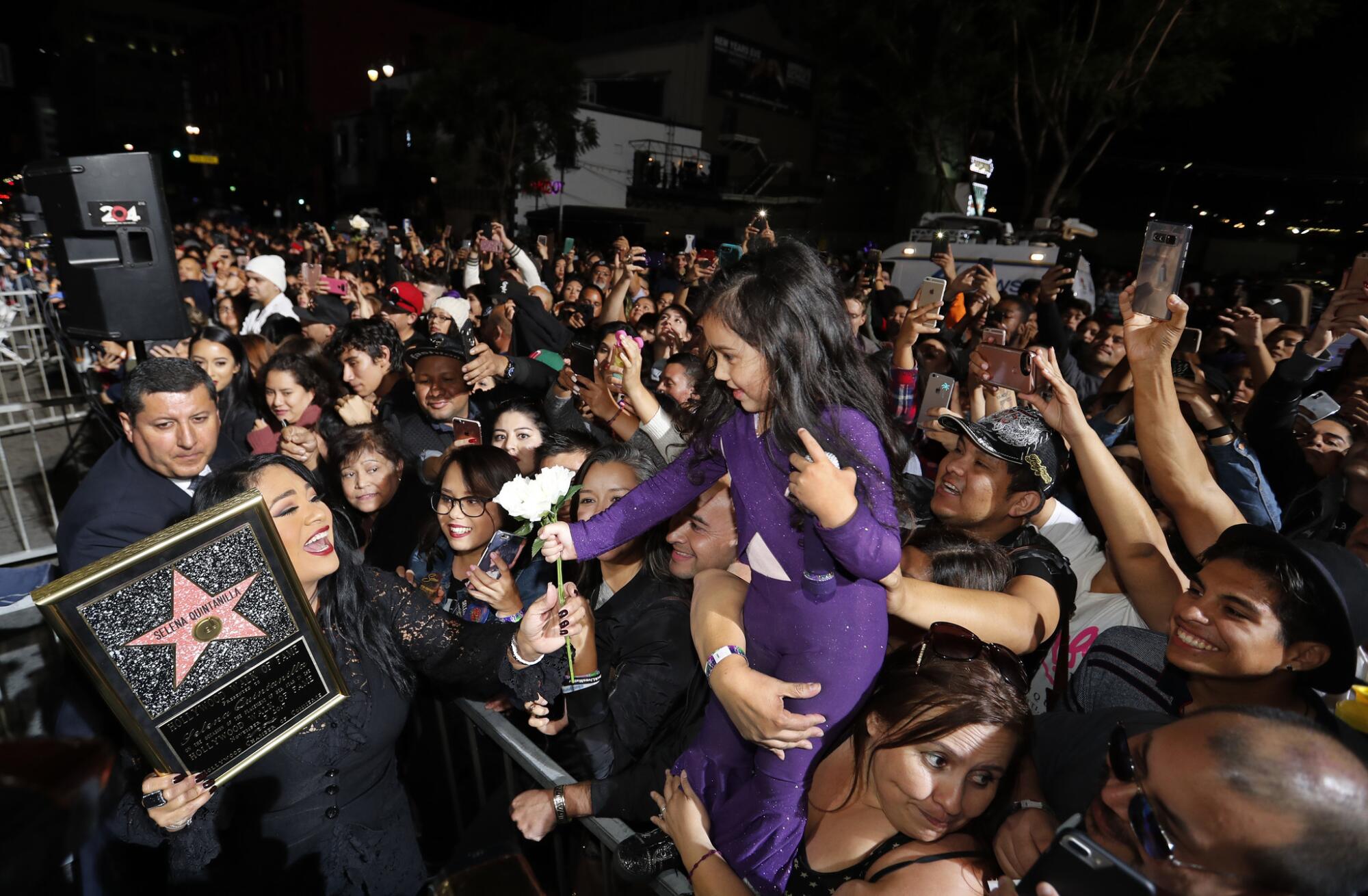
It wasn’t until recently, though, that Serratos actually spoke, over video conference, with Selena’s sister, Suzette Quintanilla, who played drums in Selena’s band Los Dinos and who served as an executive producer on the series. Serratos says it’s better that way — “I think if I had done it before, it would have blinded me a little bit in some ways.”
“I wanted Christian to know that it’s not about looking exactly like my sister, it’s about being able to tell the story of how our life was,” Quintanilla wrote in an email. “I actually shared the same with Jennifer Lopez as well when she was cast for the movie.”
For all her preparation, though, it was the act of applying her own makeup that helped Serratos feel most connected to the singer.
“Her eyebrows and her eyeliner and her lips were so specific to me,” she says, holding her fingers up to her face for emphasis. “But every time I did my makeup on set, it made me feel so much more like her. That started off my day in character, going to work and doing my makeup. For Season 2, I was like, ‘I want to do it. Selena did her own makeup, I’m doing my own makeup.’”
On “Dancing With the Stars” and “One Day at a Time,” journeywoman Justina Machado may be fall TV’s biggest star. It couldn’t have happened to a nicer person.
Still, her physical and vocal transformation into Selena was not Serratos’ biggest obstacle. It was her own insecurities.
“I started to get embarrassed when we had performances in front of audiences,” she says. “The low-key chick inside of me went: ‘Oh, I don’t want anyone to think that I think I’m Selena.’ I didn’t want to step on her toes. Our audience, our extras, were hyped because we were singing Selena songs and we love her so much. We were having so much fun. But a few times, they started to yell, ‘Selena!’ and we weren’t rolling and it made me so embarrassed. I was like, ‘Please don’t think I think I’m her. I know I’m not her.’”
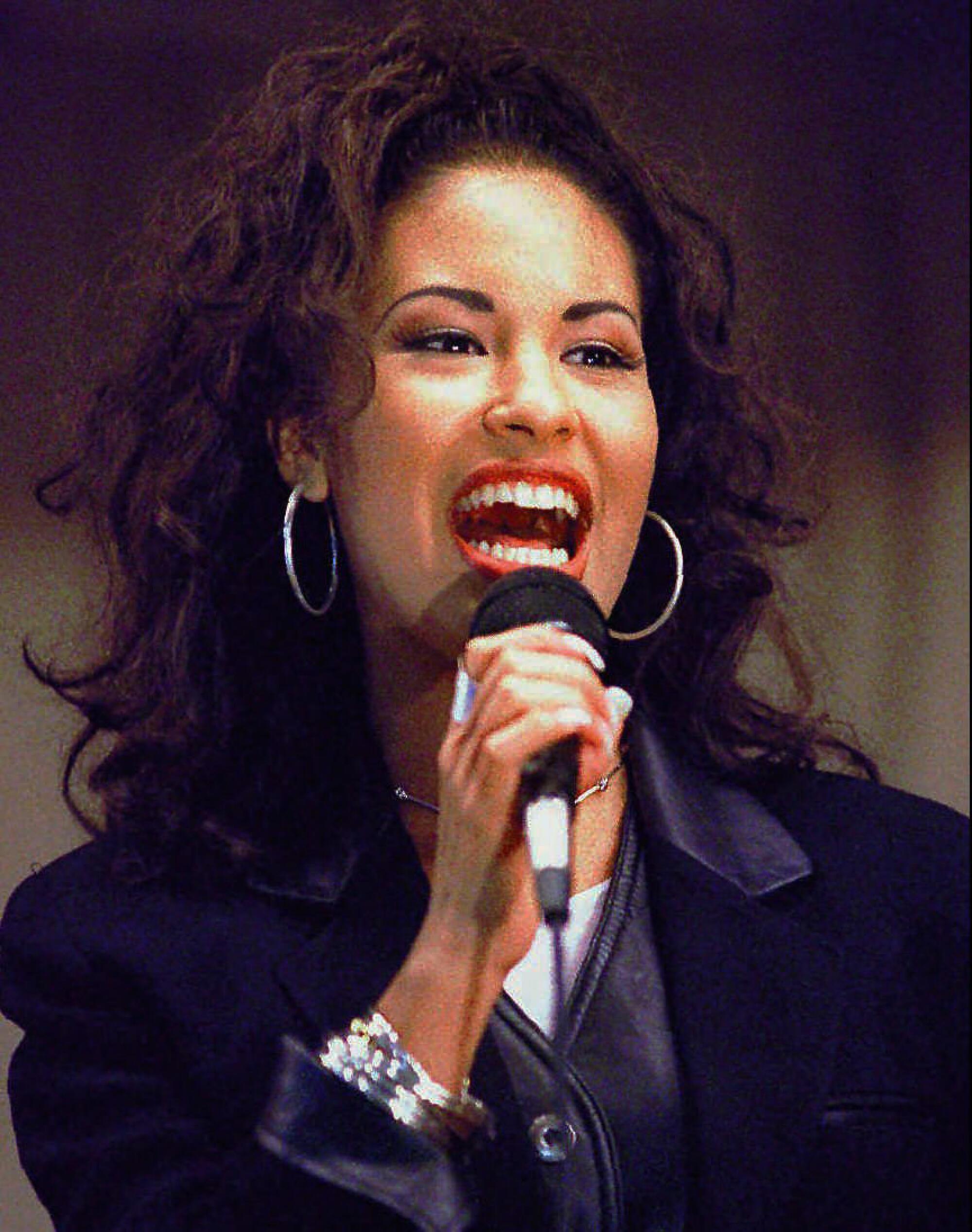
Moisés Zamora, the co-showrunner of “Selena,” said he needed someone who could convincingly pull off playing the singer from her teenage years into her early 20s.
“Christian is just an enormous force to be reckoned with,” he says. “We always knew that whoever played her had to really take on several stages in Selena’s life — from being a teenager, falling in love and becoming a superstar. She carried herself with so much maturity and professionalism but also allowed herself to be playful and charming in real life. We needed to have someone that had that kind of ability. We knew Christian could handle anything. If she could handle zombies, she could handle a little bit of ‘Bidi Bidi Bom Bom.’”
Peacock’s fresh spin on the iconic teen sitcom mixes revival and reboot, old cast and new. It starts out strong and just gets better.
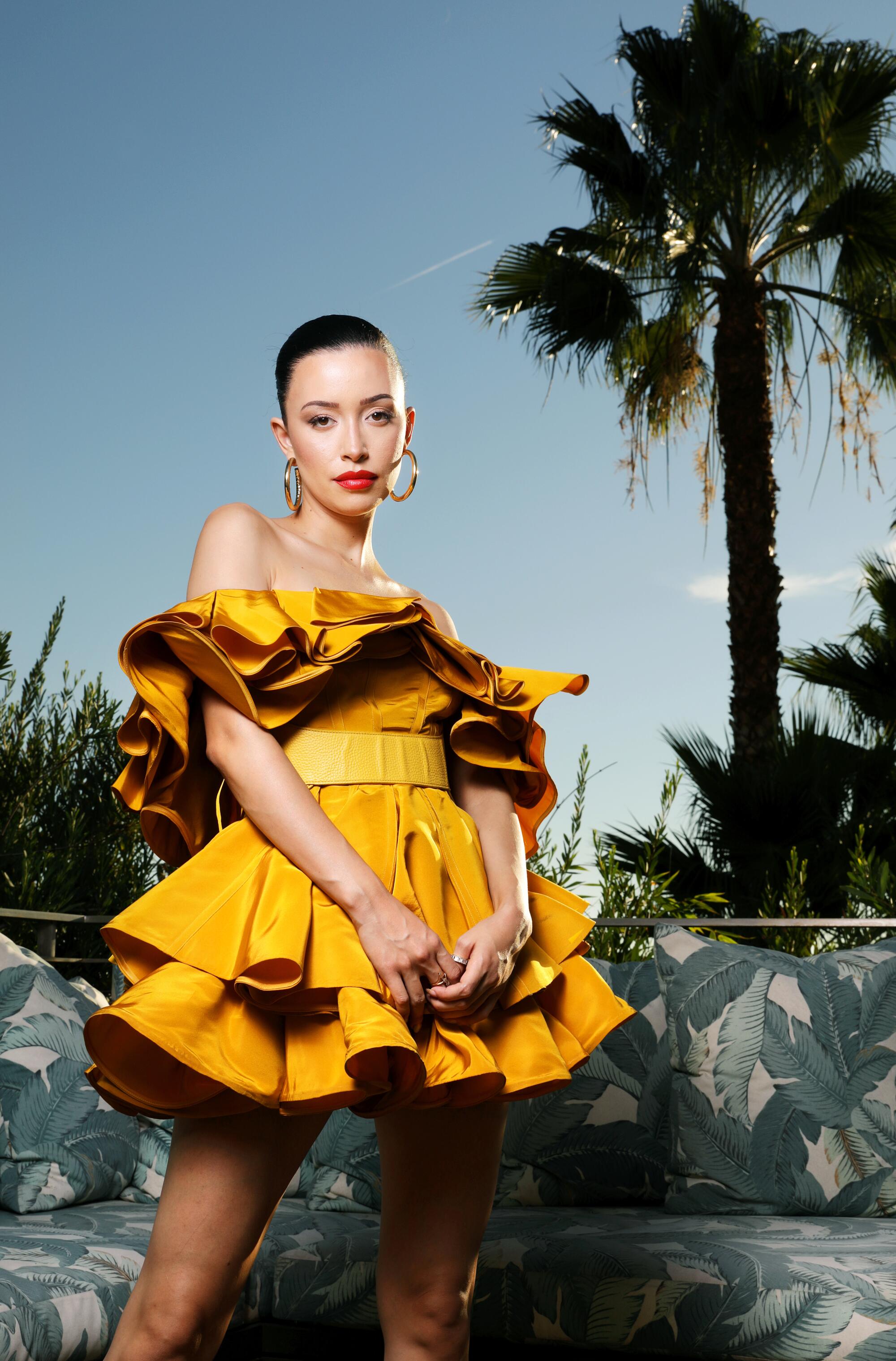
Serratos doesn’t remember when she first became aware of the singer. It’s like trying to remember when you first had a peanut butter and jelly sandwich. She knows she was young, probably 4.
“Her songs were always around. They were always playing in our house,” she says.
An only child, Serratos grew up in the Burbank area. Her mother is a jewelry designer and her father does construction on Hollywood sets. It was while visiting her father on studio lots as a child that she had her first brush with a life in front of the camera; on occasion, she’d be put to work, serving as a background actor on shows like “The Drew Carey Show” and “Coach.”
But Serratos wasn’t the sort of kid who knew from an early age that the only thing she wanted to do was perform. For about a decade, she was a competitive figure skater. If she’s being honest, she says, what ultimately drew her to acting is that it was lucrative.
“My mom was a hard-working single mom, so it set us up for awhile,” says Serratos, who nabbed roles on Nickelodeon and the Disney Channel. “I kind of liked that it started that way and not that I really wanted to be in Hollywood and tried so hard on my own — because it helped me fall in love with the industry more and more as I invested time into it. And I think that’s a really great way to fall in love with something or to realize it’s what you want over time. That makes it a lot more honest ... You can change your path in life whenever you want. But I keep choosing acting.”
At age 18, she landed the role of Angela Weber, a friend of Bella Swan (Kristen Stewart), in the wildly popular “Twilight” franchise. But arguably her biggest role to date has been that of Rosita Espinosa on “The Walking Dead” since its fourth season — becoming a central character during the show’s run.
“I wasn’t given a lot of responsibility initially [on ‘The Walking Dead’], but it taught me so much,” she says. “It taught me to create moments where there aren’t moments. It taught me to appreciate having no dialogue and no moments on paper. You had to figure out what those were. And it also taught me patience and grace... so when I was given the opportunity to show what I had, I knew how to get there.”
Scott Gimple, one of “The Walking Dead’s” executive producers and its showrunner from seasons 4 to 8, said he has always been impressed by what she delivered on-screen.
“This show is like doing black box theater while playing football, because there’s an incredible physical aspect that she’s brilliant at,” Gimple says. “But then I love seeing the colors that she plays when she’s bouncing off another character — it’s like she’s playing tennis with the other character.”
“Selena: The Series” gives Serratos her first headlining role. She’s already feeling how that has changed her an an actor.
“I learned how to manage being in an incredible position of power,” she says. “And I am happy that the first time I had the responsibility, and I had the opportunity, to be a leading woman, that I am playing this woman. Because she taught me so much, and she is somebody to admire. I loved her confidence and her grace and her thoughtfulness. This has really taught me how to manage being in that position, as a woman and as a minority. I’m really happy for the experience.”
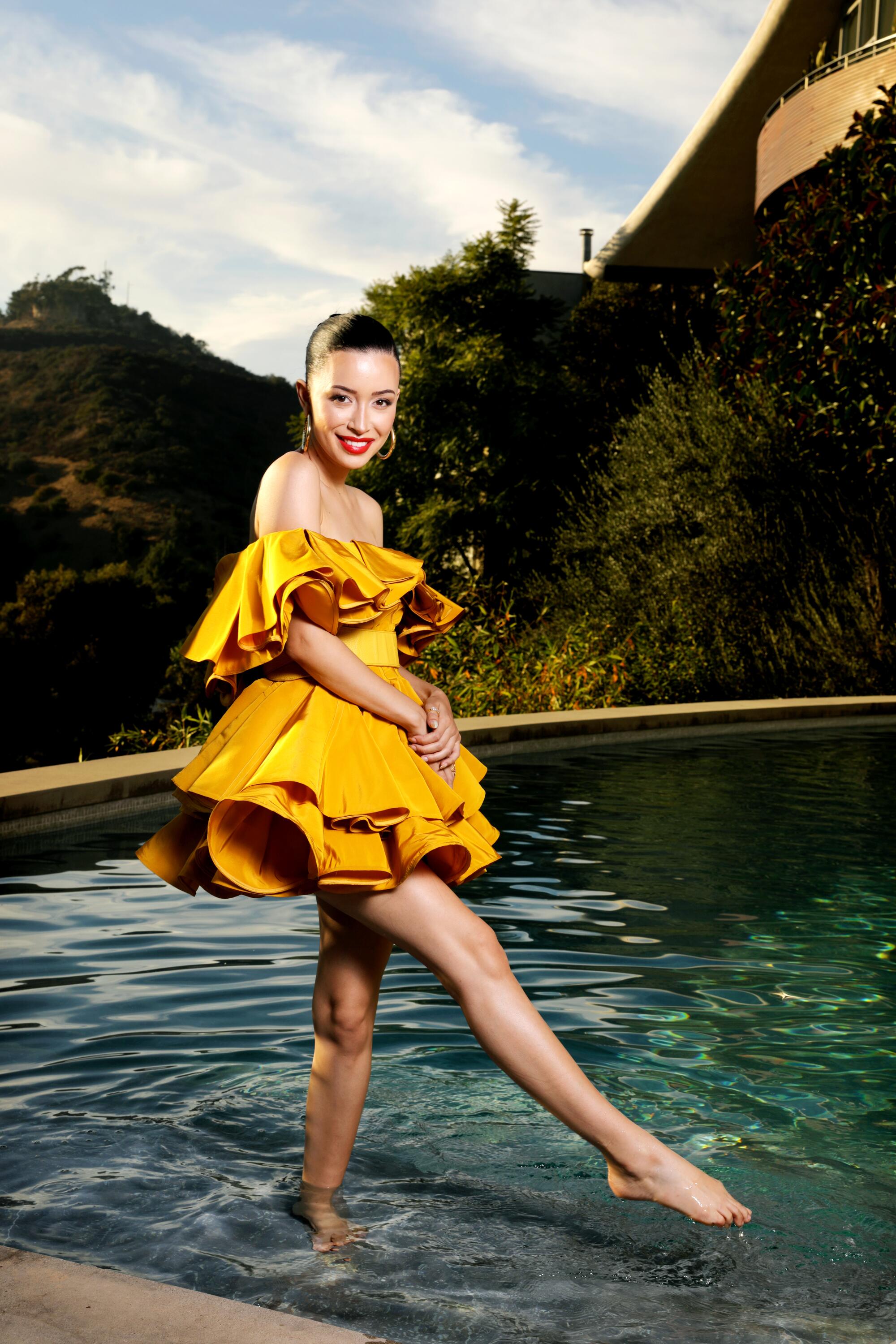
More to Read
The complete guide to home viewing
Get Screen Gab for everything about the TV shows and streaming movies everyone’s talking about.
You may occasionally receive promotional content from the Los Angeles Times.
